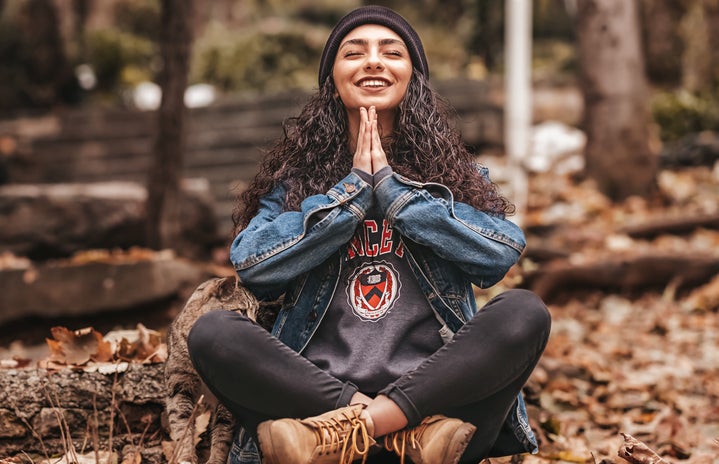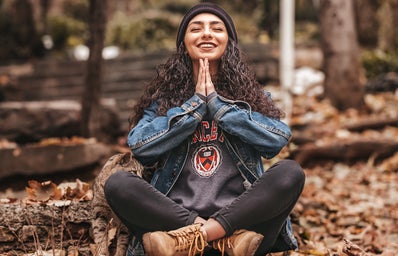While I have always struggled to meditate during a regular year, 2020 has proven to be a rather difficult time to try to clear your mind and focus on your breath for 10 minutes or more. From the coronavirus pandemic to the presidential election, these past few months have been stress-inducing, to say the least, which is why mindfulness might seem like the logical answer to help navigate these emotions. So, the question becomes: how do you really meditate when our minds are constantly racing with fear and anxiety?
Back to basics
Over the years, I have experimented with various meditating apps, including headspace, which has developed a COVID-19 specific page on their website where they list out guided meditations. They also have helpful articles that explain how to meditate.
It is helpful to choose a specific time to meditate each day and locate a space where you can focus on your breath without interruption. At this point, you can decide whether you want to follow a guided or unguided meditation. These steps may be familiar to those who have meditated before, but what headspace reminds us is that meditation is not about stopping wandering thoughts that may arise as we meditate, but rather observing “our thinking without getting caught up in our thoughts and emotions.” By building awareness of these moments of distraction, you are able to strengthen your focus, compassion, and mindfulness.
In an article published by U.S. News, contributor Elaine K. Howley outlines 12 tips for meditating specifically during the coronavirus pandemic. She stresses the importance of making meditation a habit, experimenting with different forms of mindfulness such as yoga or tai chi, limiting your media consumption, and even writing down your thoughts that may arise during these practices.
Related Article: This Is How You Can Crush Your At-Home Workouts
Recognizing those racing thoughts
Of course, not getting caught up in your thoughts while you meditate is difficult on a regular day, but it’s further complicated by all of the anxiety which comes with living during the COVID-19 pandemic. Now more than ever, our thoughts are prone to spiraling out of control, which is why meditation and mindfulness practices are even more relevant to help reduce stress and anxiety pertaining to everyday life.

Meditating isn’t one size fits all
Plus, meditation looks different for everyone. Your practice does not need to be as structured as the guided ones on headspace, but can be as simple as breathing in and out a few times, accepting when your mind has wandered. What’s important is that practicing mindfulness does not add to your stress.
In an article published by Yale Medicine, Rajita Sinha, Ph.D., chief of psychology for the Department of Psychiatry and director of the Yale Stress Center, states that “Being nonjudgmental is a critical part.” Some may think meditating is “easy” because you are just sitting and breathing, but in reality, it is a difficult act of self-care which requires practice, patience, and kindness towards yourself.

That being said, finding simple ways to incorporate breathing techniques into your daily life, whether while washing your hands or going on a walk, can help make meditating less daunting.
Be kind to yourself
It is equally important to remind yourself that taking time out of your day to meditate is not a selfish escape from reality, but rather a means to become kinder towards others and yourself. Taking a few moments each day to yourself helps you be in a better mindset to be grateful for those in your life. In fact, American psychologist and teacher of Buddhist meditation Tara Brach explains in an interview for Vox that “the true impact of meditation is that it actually dissolves our excessive sense of self. It frees up our sense of connection with each other.” After all, practicing gratitude is another aspect of mindfulness that grounds us in the present.
Related Article: What You Need to Know about Mindfulness, Your New Finals Season Hack
Ultimately, meditating and practicing mindfulness during a pandemic will look different than how it would during “normal” times. But that is the beauty of meditation: it helps you manage stress and find your breath no matter the anxiety levels you may be facing.
It’s important to remind yourself that the coronavirus pandemic has impacted each person differently and taking 10 to 15 minutes each day to detach from any distractions and focus on your breath is not a selfish act, but a way to take care of your mental and physical health.


